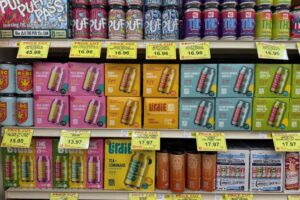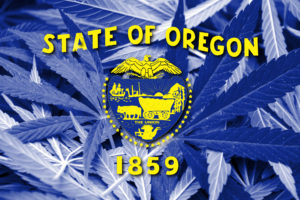
On April 2, 2019, the federal Food & Drug Administration (“FDA”) Commissioner Scott Gottlieb issued a press release on hemp and hemp-derived cannabidiol (“Hemp CBD”). This is Gottlieb’s first major official press release since the now infamous December 20, 2018 press release which came just hours after the 2018 Farm Bill passed. In that December 20 press release, the FDA stated that even though the 2018 Farm Bill removed hemp from the Controlled Substances Act, the FDA still retained authority over Hemp CBD additives to foods (both human and animal), drugs, and dietary supplements.
Since the 2018 Farm Bill passed and the FDA issued the December 20 press release, there has been a proliferation of various Hemp CBD products nationwide and only very little FDA enforcement. During this time, the FDA has apparently been scrambling to figure out what to do about Hemp CBD (which you can read about here and here).
In today’s press release, the FDA gave some more guidance on what exactly it was doing:
- The FDA will be holding a public hearing on May 31, 2019 to get input from the public so that it can use that information in regulating the Hemp CBD;
- The FDA is creating a “working group” to “explore potential pathways for dietary supplements and/or conventional foods containing CBD to be lawfully marketed.”
- The FDA issued three more warning letters to operators whom it believes have made medical statements concerning Hemp CBD products that were “egregious”.
Another key aspect of the FDA’s guidance is its updated FAQs. In the FAQs (see number 13), the FDA responds to questions regarding cosmetics (which can include things such as topicals) as follows:
If a product is intended to affect the structure or function of the body, or to diagnose, cure, mitigate, treat or prevent disease, it is a drug, or possibly both a cosmetic and a drug, even if it affects the appearance. (See Question #3 for more information about drugs.)
FDA can take action if it has information that an ingredient or cosmetic product is unsafe to consumers. Consumers can report adverse events associated with cosmetic products via the FDA’s MedWatch reporting system, either online or by phone at 1-800-FDA-1088, or by contacting your nearest FDA district office consumer complaint coordinator. For more information, please see the FDA’s webpage on how to report a cosmetic-related complaint.
This is an interesting response and we will be sure to give more insight on it in the coming days. But suffice it to say, the FDA apparently isn’t taking as hard a stance against cosmetics as it is against foods. It appears (at least for now) that the FDA is poised to send warning letters to companies selling Hemp CBD topicals IF those topicals are marketed in a way that makes them “drugs”.
Stay tuned to the Canna Law Blog for more on the FDA’s position on Hemp CBD.























